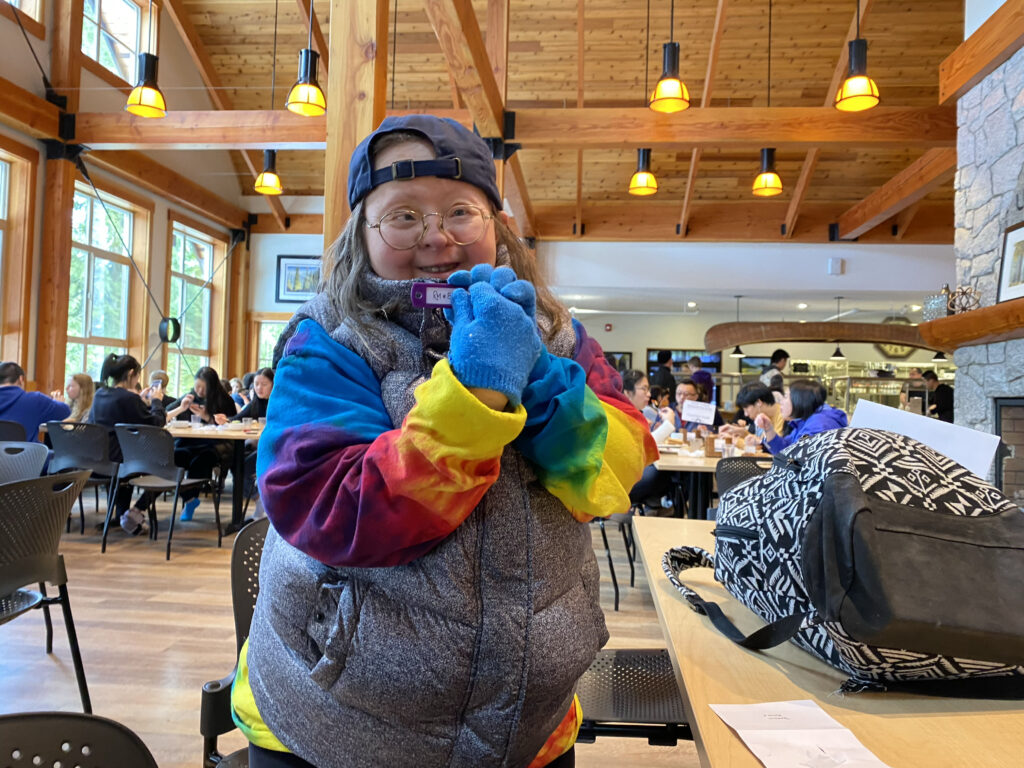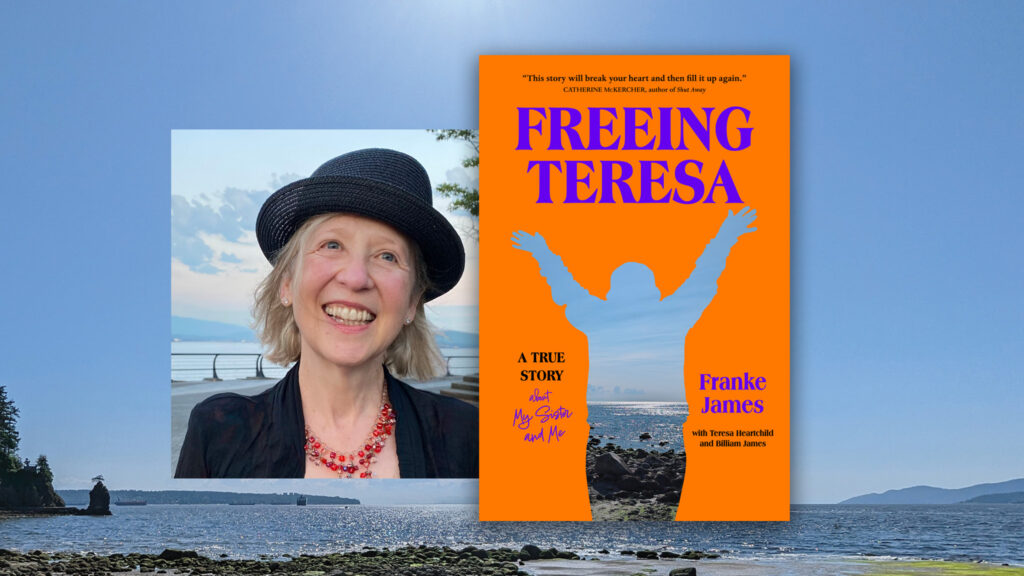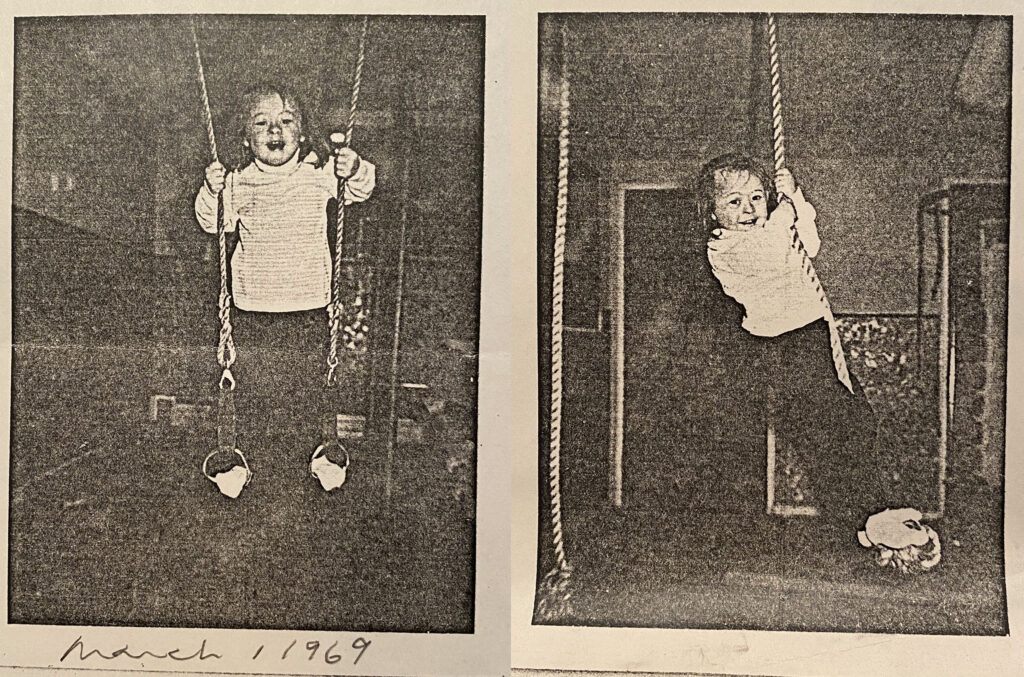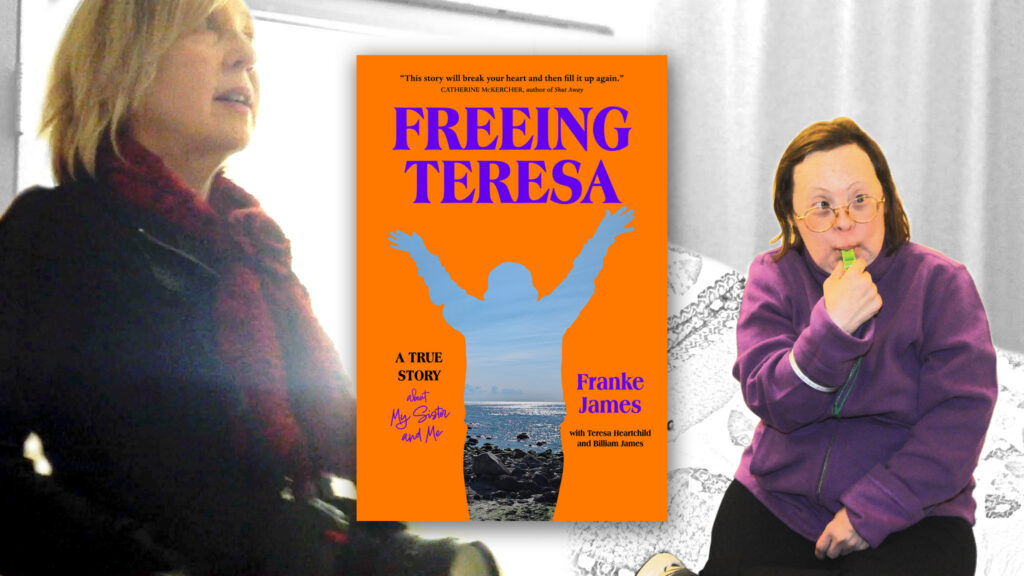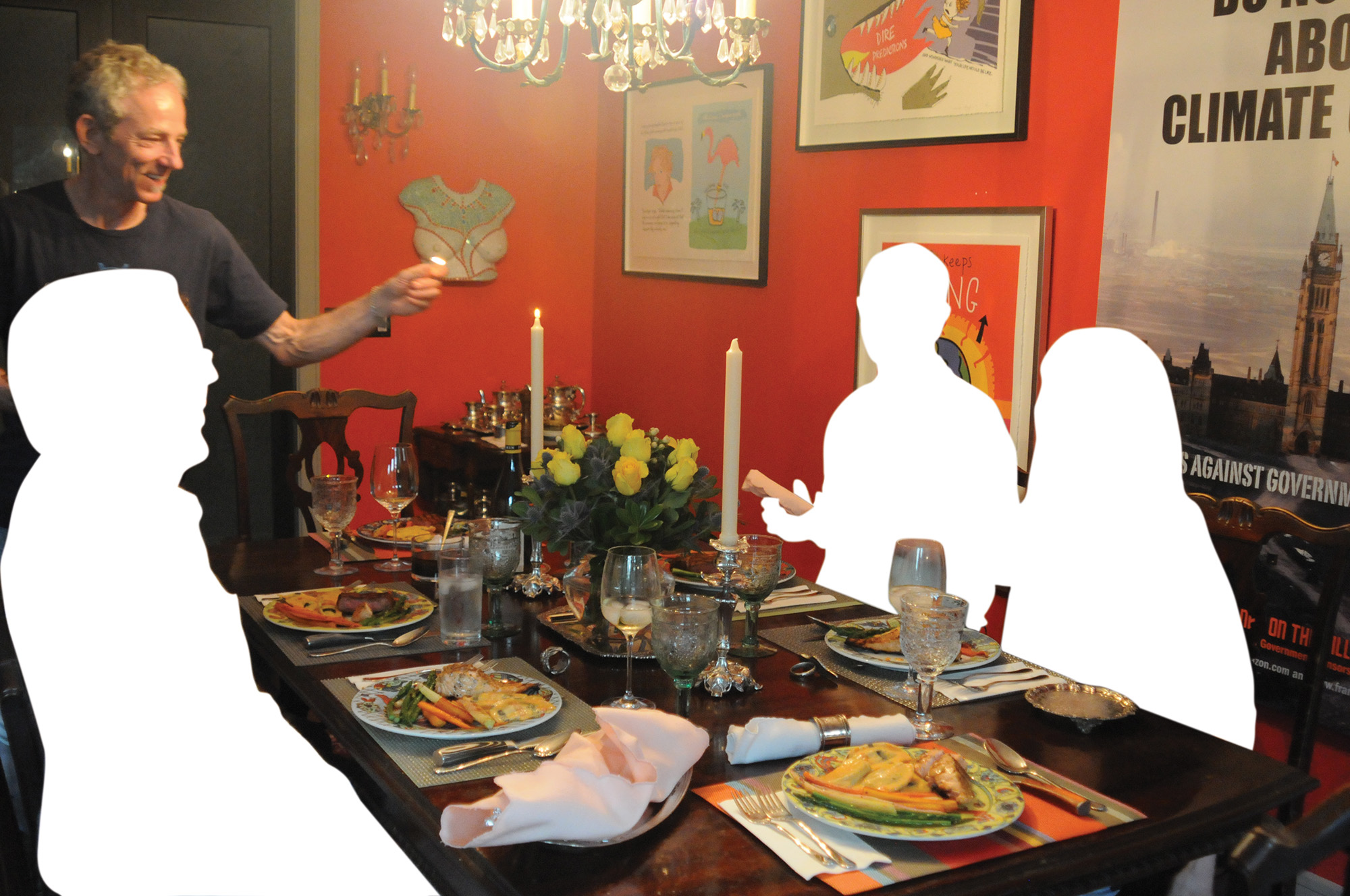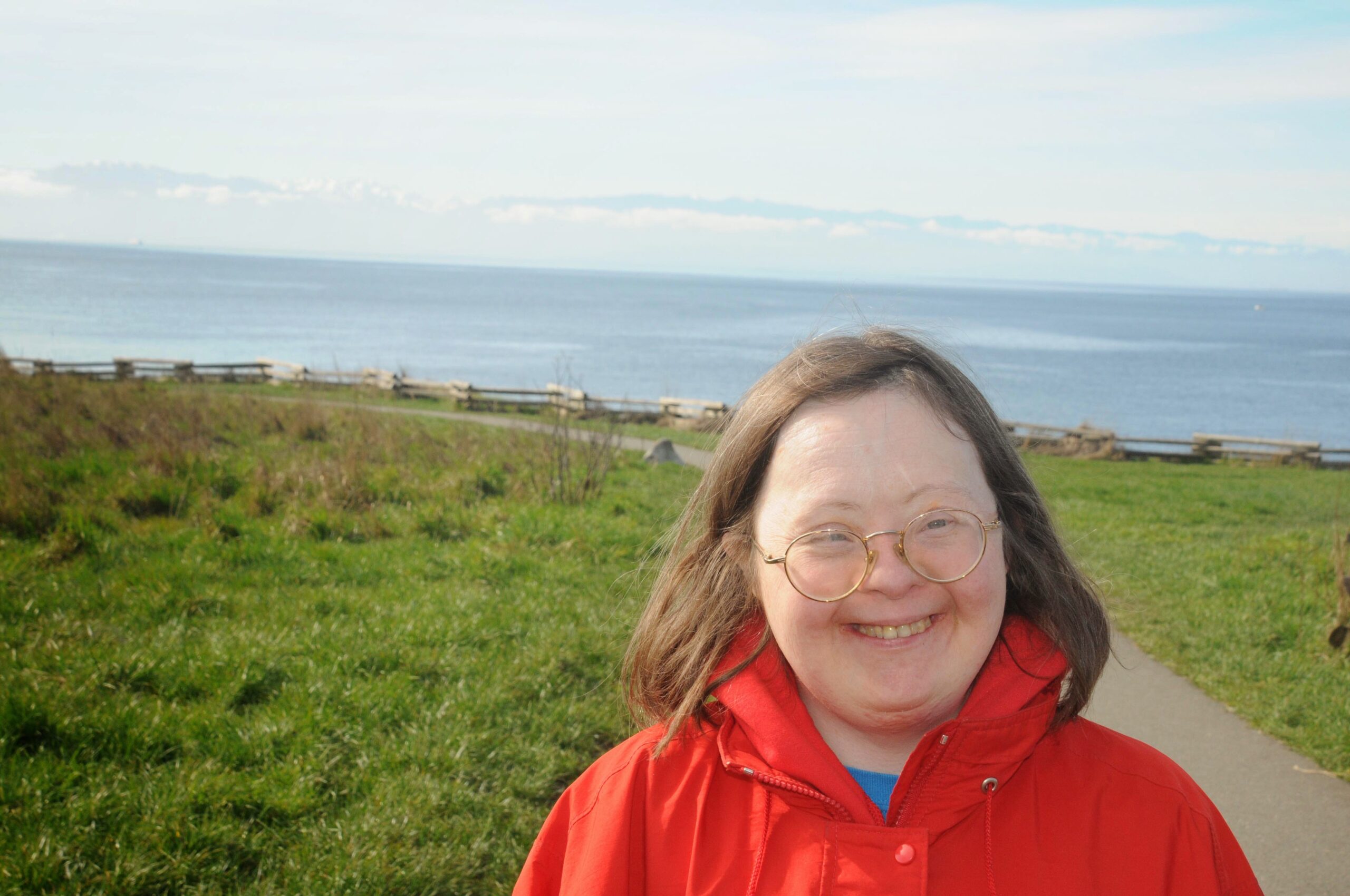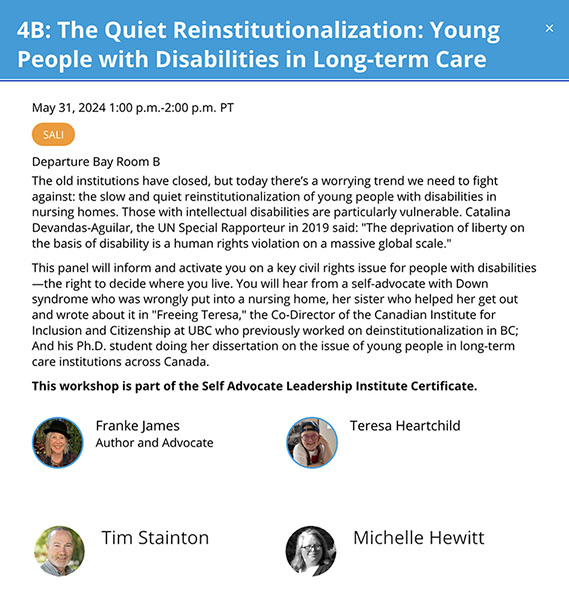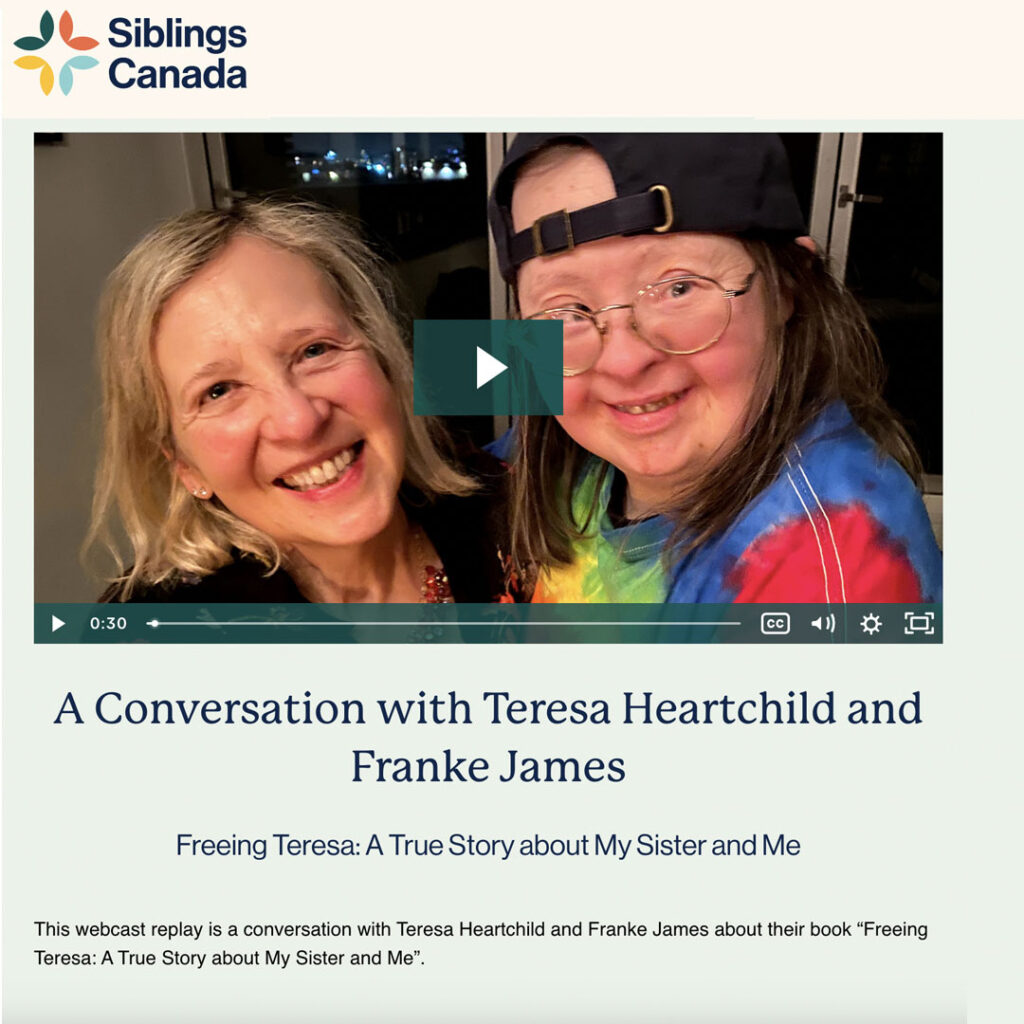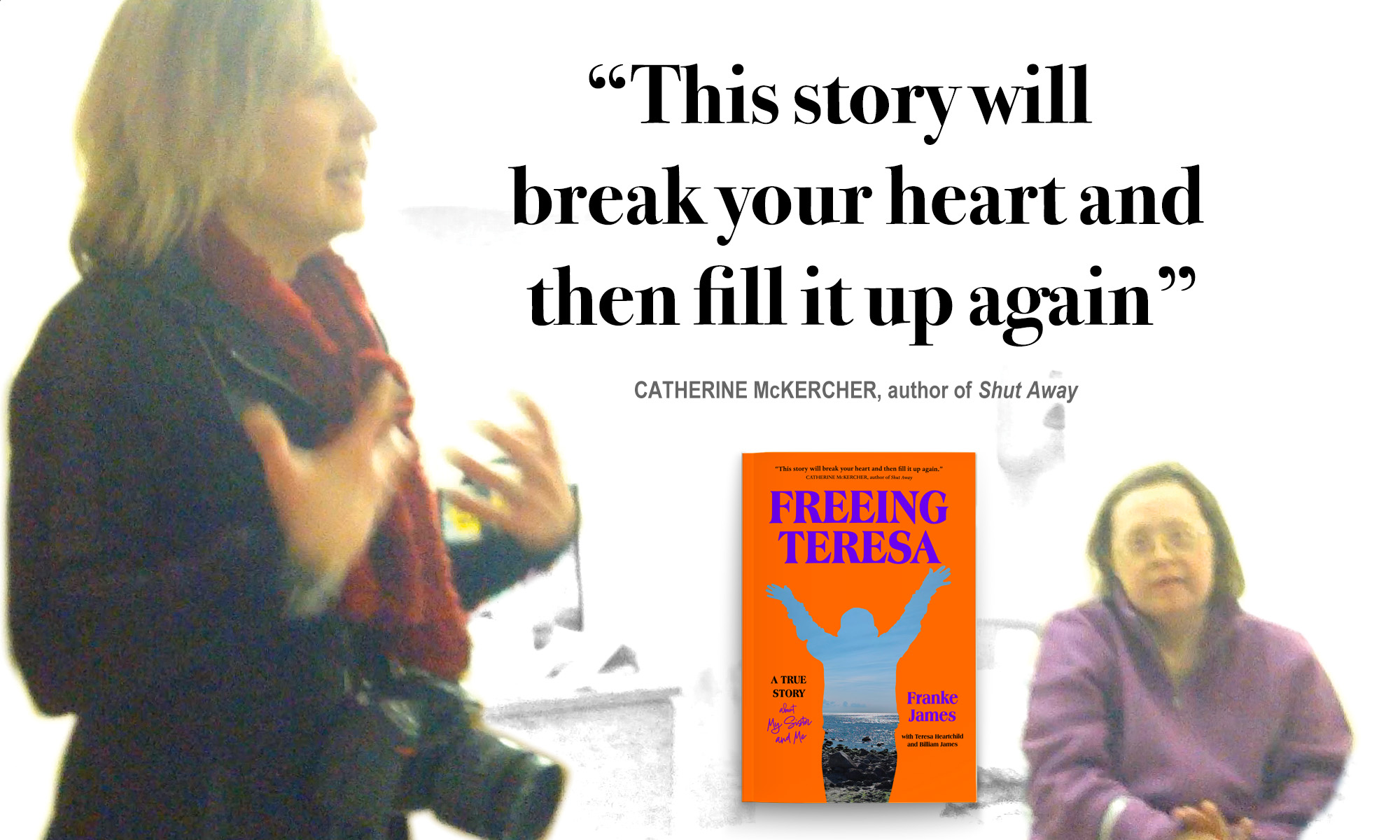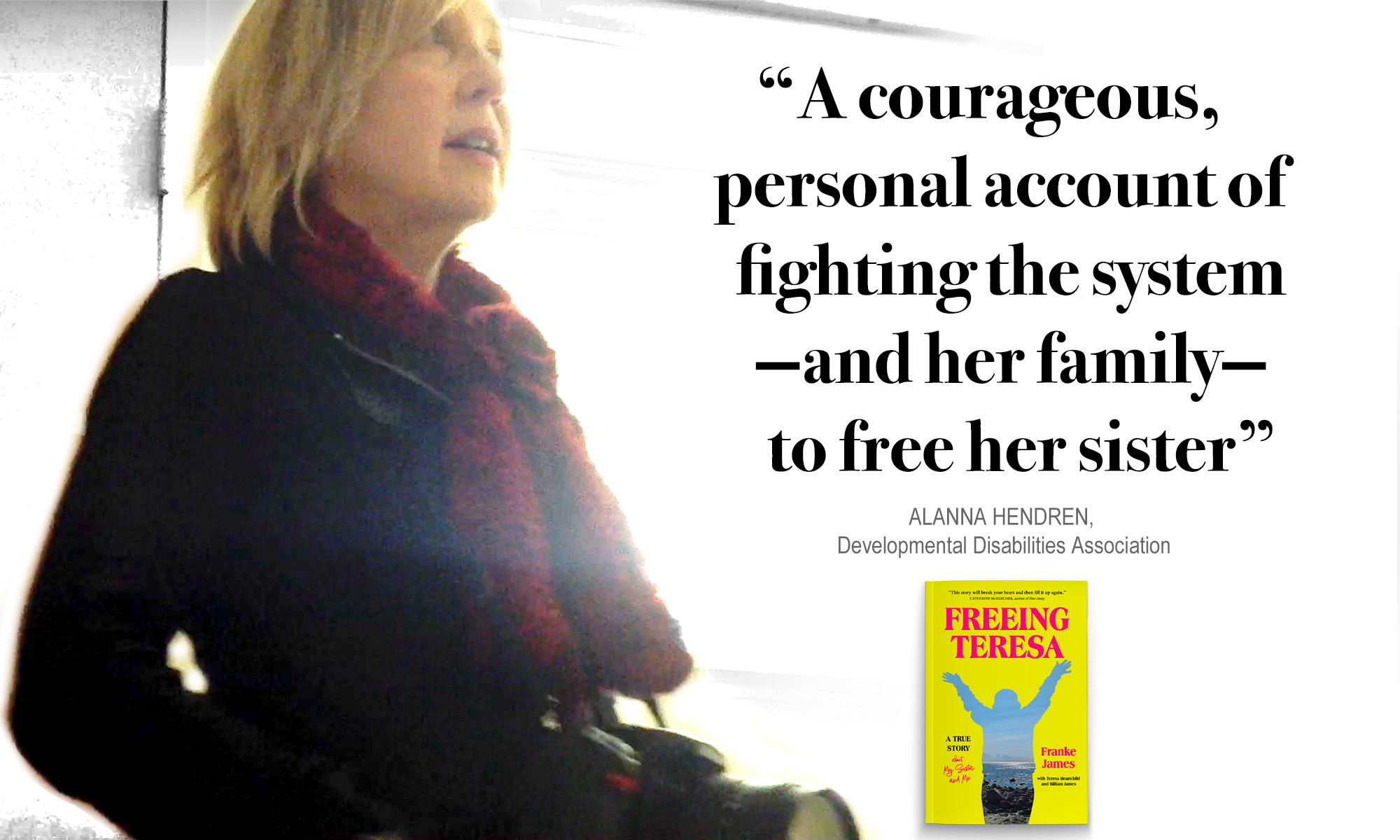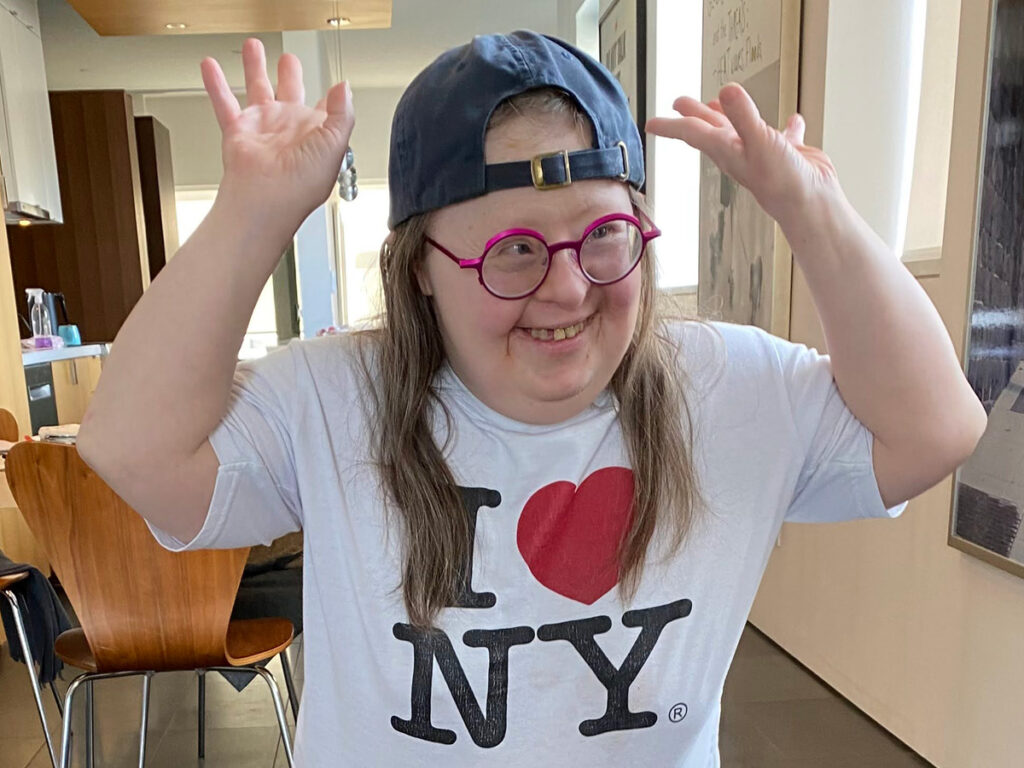
Ten Years of Celebrations!
Yes, it has been ten years! The book, Freeing Teresa, tells of Teresa’s narrow escape from an end-of-life nursing home. Four of her older siblings insisted she needed to live there, but Teresa (and Franke) didn’t listen to them. Teresa is feisty and not someone who likes to be bossed around. Proving the naysayers wrong, she has lived successfully in the community for over a decade. And she is celebrating all the wonderful things she has done in this Top Ten Countdown from 2014 to 2023! (Thankfully Bill and I believed all along that Teresa had many places to go, things to do, and people to meet.)
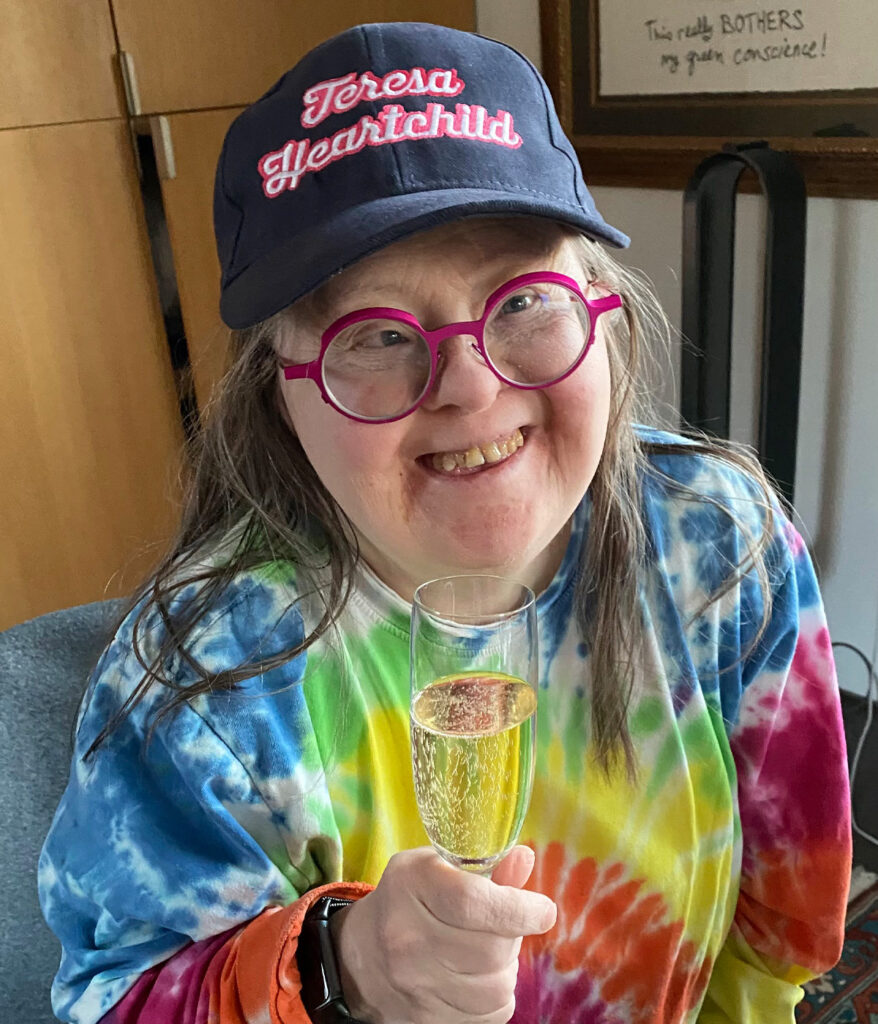
Teresa celebrated her ten year anniversary of freedom with a well-earned glass of champagne!
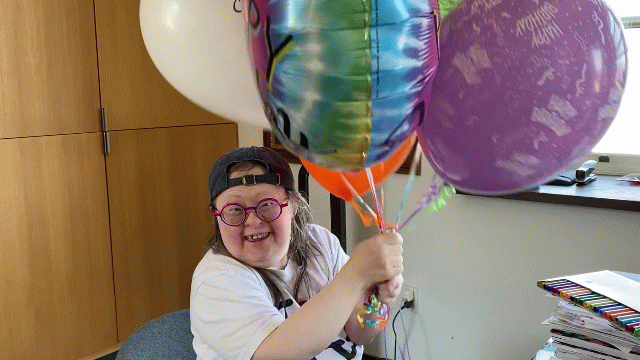
Here is our top ten countdown…
TEN (10) Birthdays
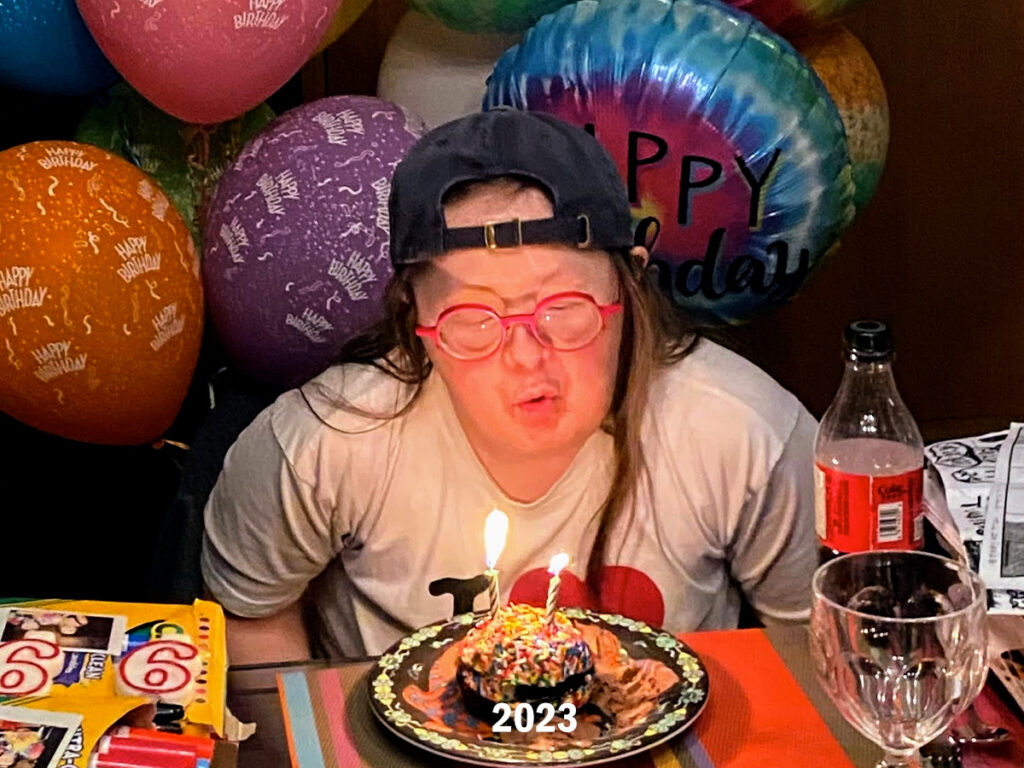
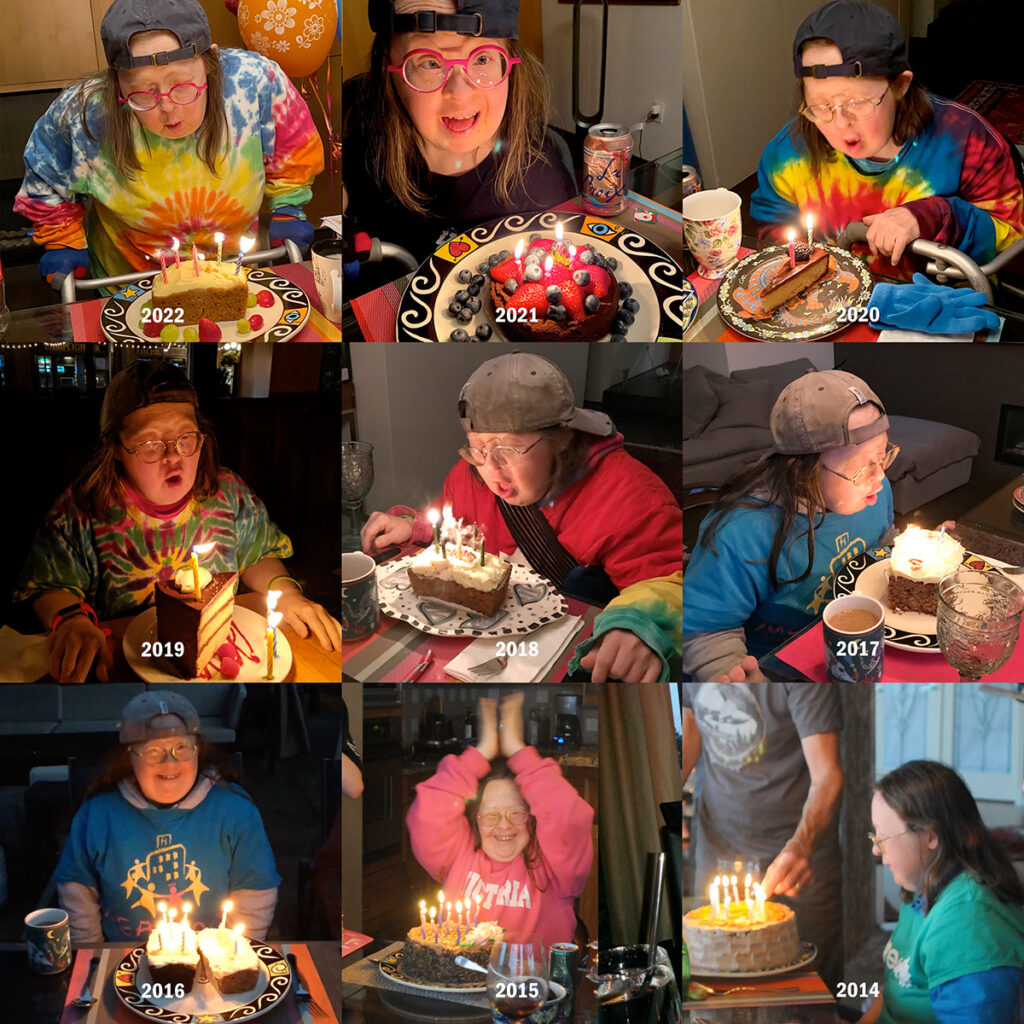
Ten birthdays, starting with the Big Five-Oh (50) on July 22nd, 2014. Then it was like playing dominoes, successfully knocking down 51 and 52, then 53, 54, 55, 56, and into the home stretch 57, 58, and bango! The 59th in 2023! Every year was great. How the years flew by! Congratulations Teresa! You did it with style—and we know that your Six-0h (60) will be just as amazing!
NINE (9) Tie-Dye Sweat Shirts. At least!
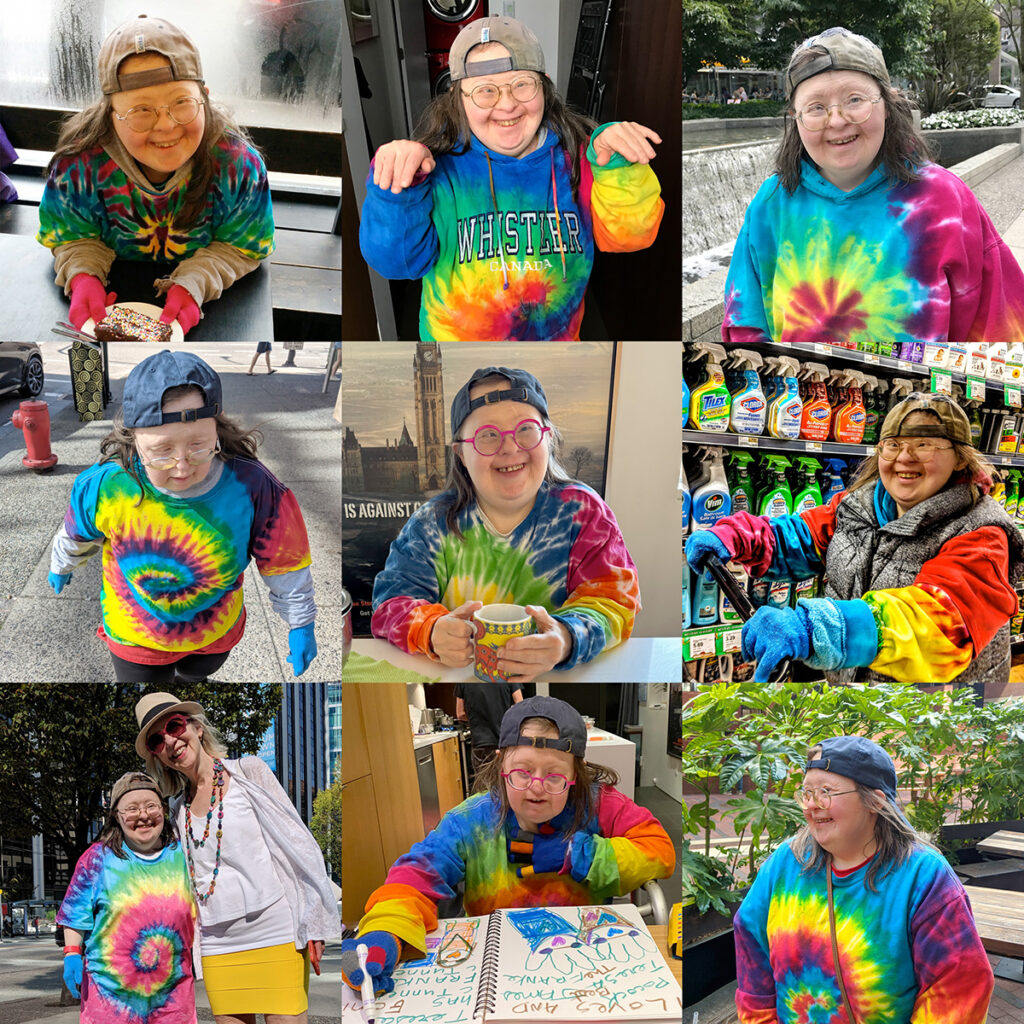
Over the years, Teresa has totally transformed her wardrobe, turning herself into a colourful superstar! She currently has at least nine tie-dye shirts in her room and has worn many more over the years. By the way, Teresa has also developed a passion for I ♥️ NY T-shirts. She has a half-dozen of those, too.
EIGHT (8) Medical Emergencies
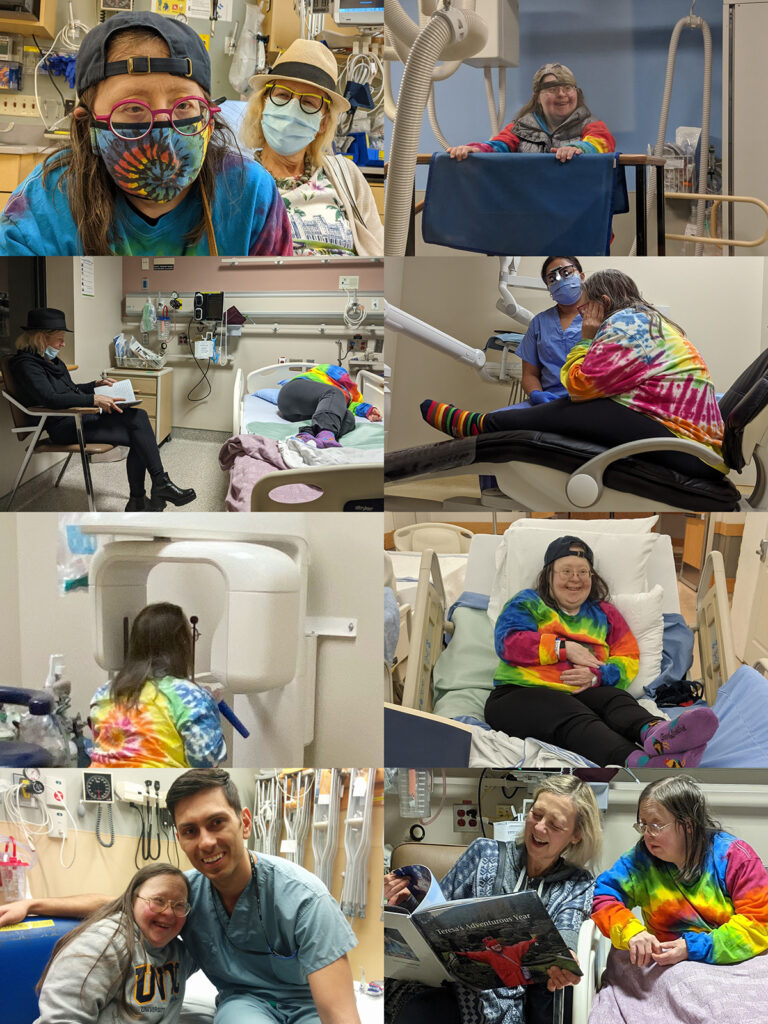
Two hernia surgeries, two broken ankles, two dental surgeries, one blocked esophagus, and one nuclear octreotide scan — a cancer scare, but luckily, Teresa got the all-clear.
SEVEN (7) Agencies Working Together
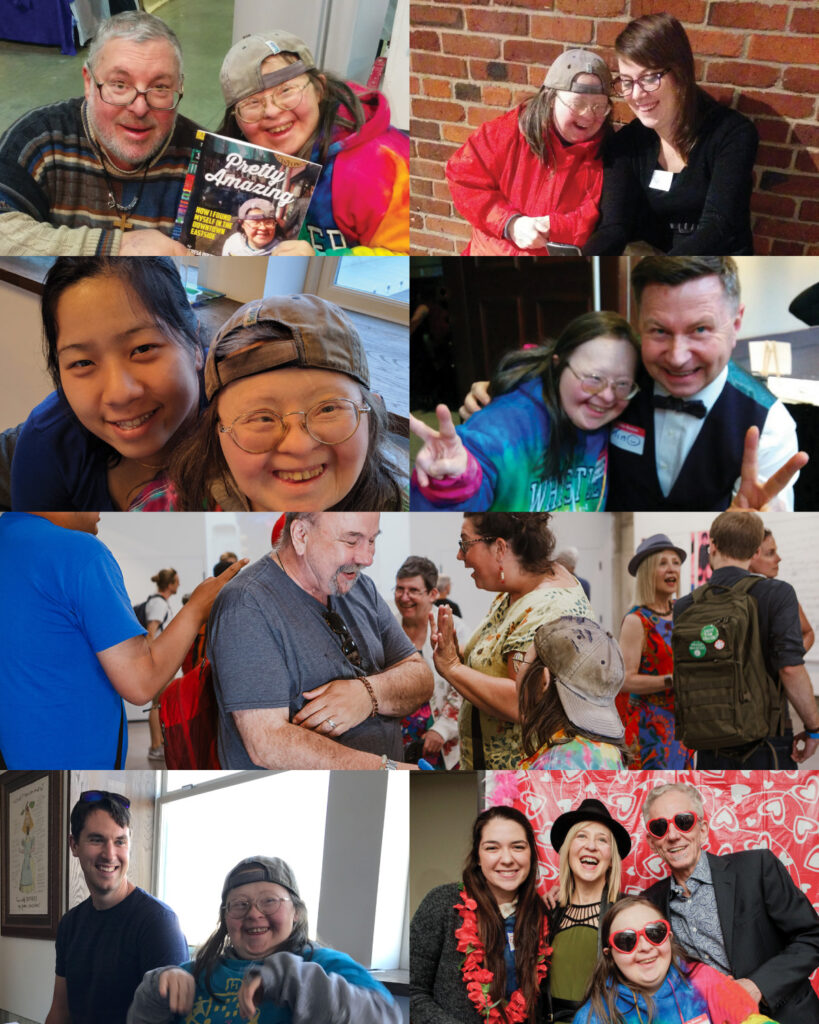
Teresa is receiving great support from the disability community and service agencies in BC. Spectrum Society for Community Living is her lead agency, and their team is doing a fabulous job. Teresa is also getting lots of support, advice and friendship from Inclusion BC, PLAN, Down Syndrome BC, Community Living BC, Canadian Down Syndrome Society, and Inclusion Canada.
SIX (6) Hundred Chicken Pies

Who knows how many chicken pies Teresa has eaten over the last ten years? She loves chicken pies, starting with home-baked ones from Thrifty’s, to frozen no-chicken pies from Amy’s, to her current favourite, Costco chicken pies!
FIVE (5) Arts Grants
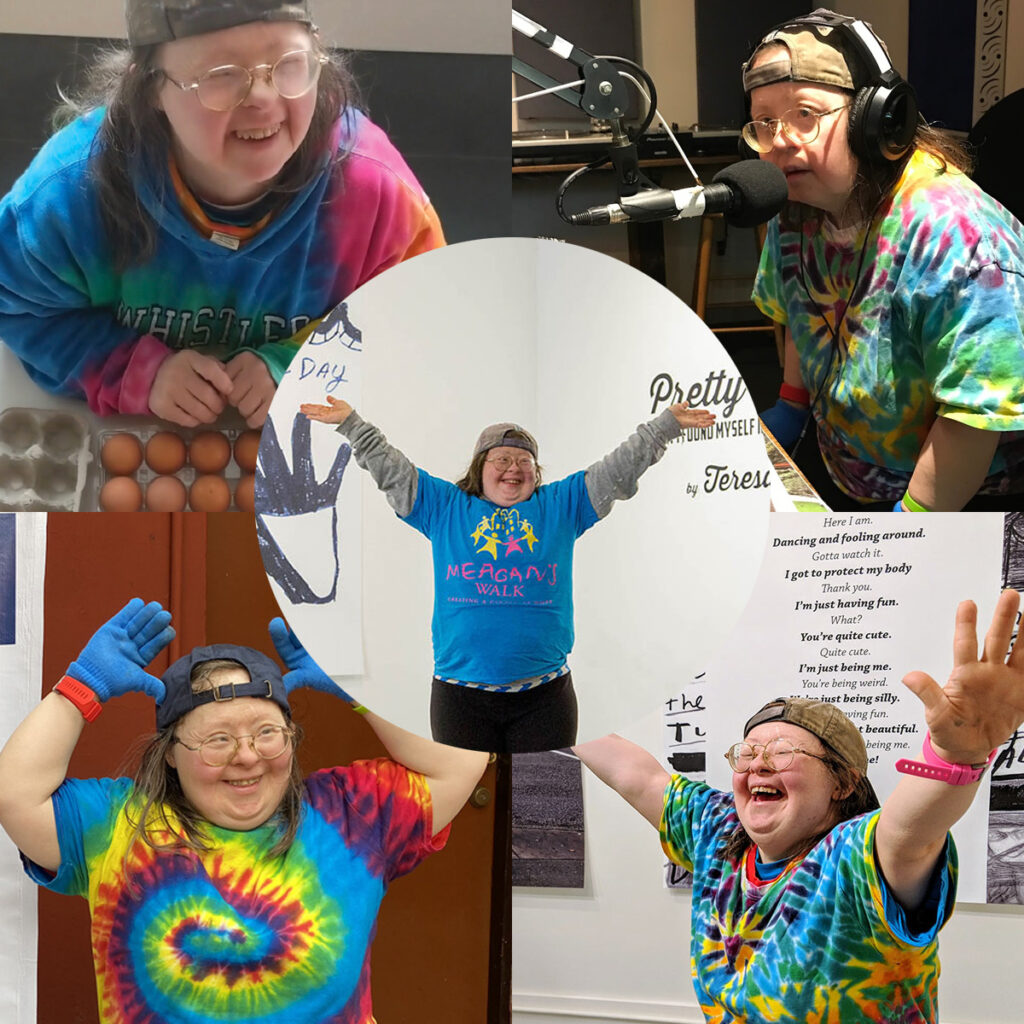
Teresa has earned two Canada Council travel grants, two DTES Small Arts Grants from the Vancouver Foundation, and one arts support grant from Spectrum Society. All this helped Teresa write and create two books, exhibit her art in three solo shows, participate in five group shows, show her videos at three film festivals (winning one silver award!), and travel to international exhibitions in Boston and Mexico.
FOUR (4) Vocations
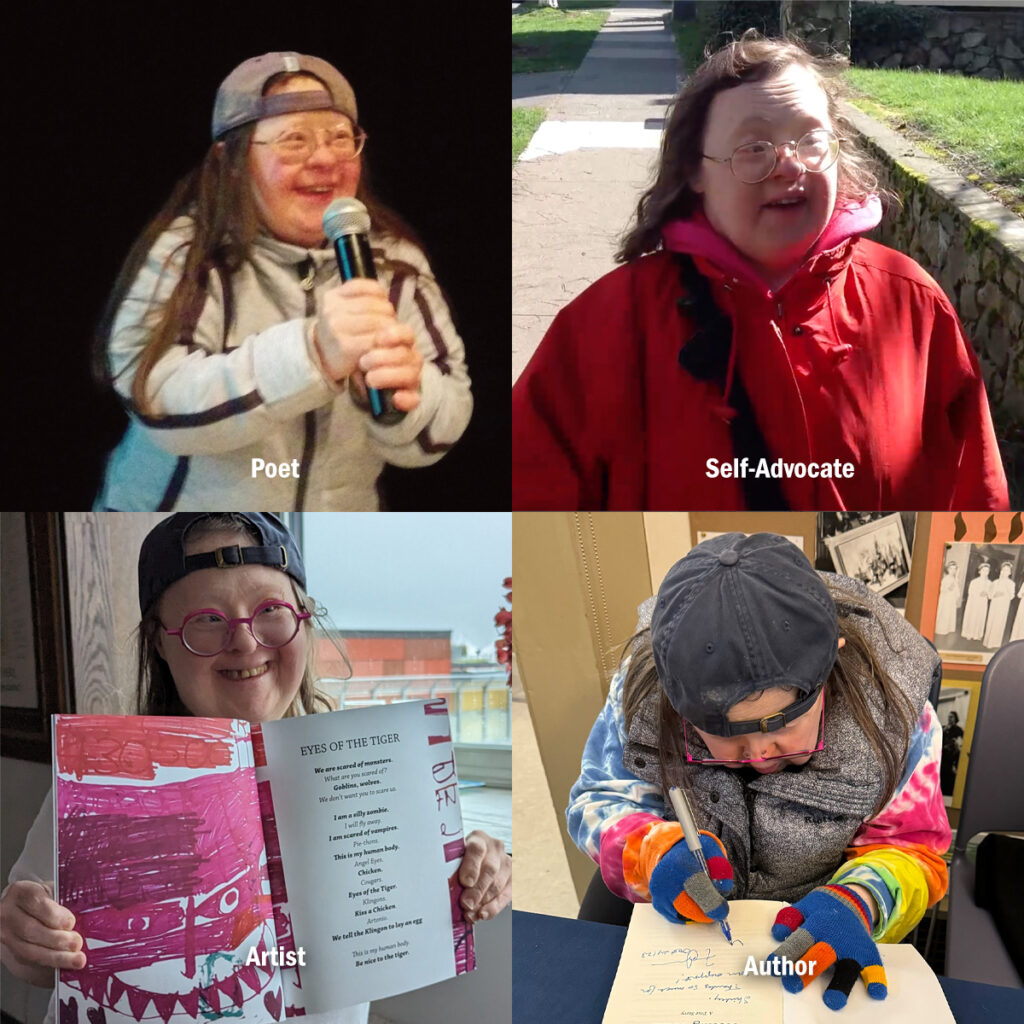
Teresa has established herself as a poet, self-advocate, artist and author. The photos show Teresa speaking at the Carnegie Centre in DTES, marching for disability rights, holding up her artwork in her book Totally Amazing, and signing one of her books.
THREE (3) Amigos
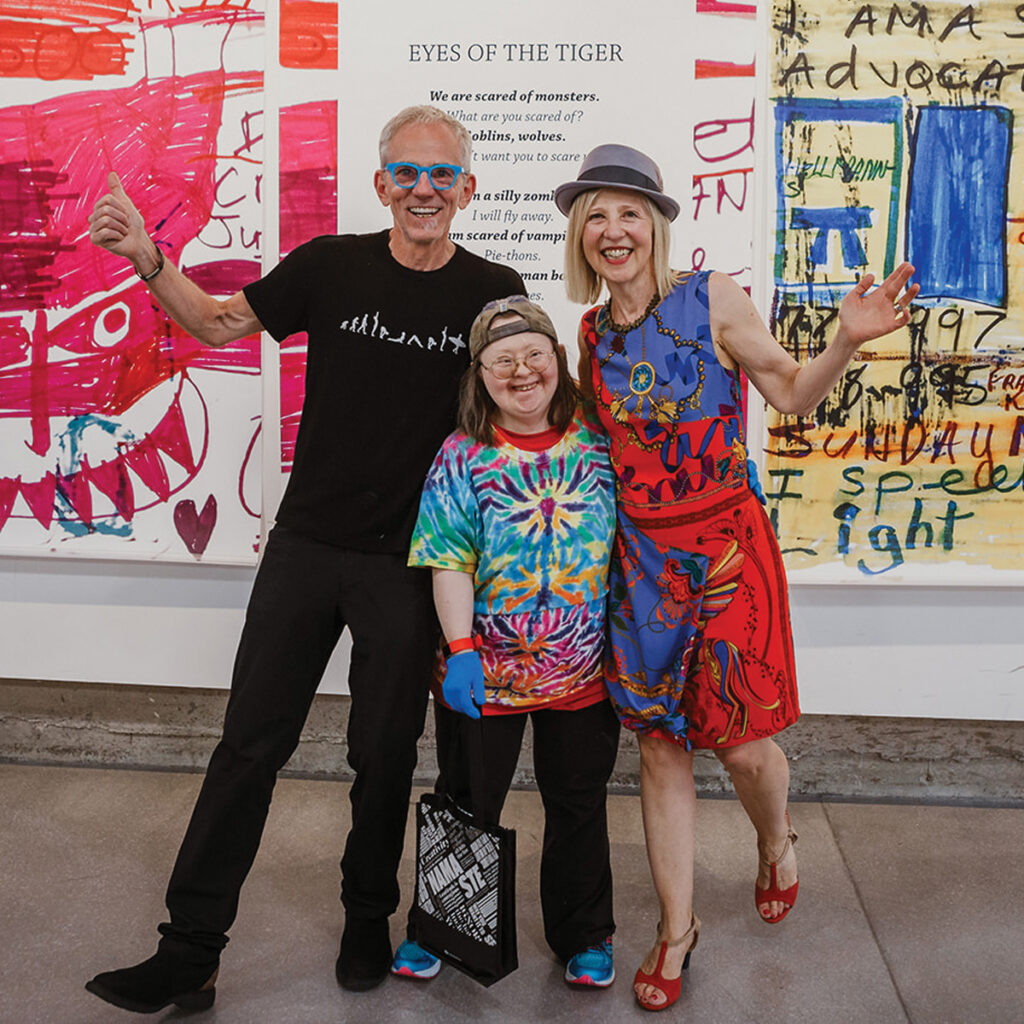
Teresa, Franke, and Bill have lived together for ten years and have become great friends. “The Three Amigos,” as Teresa calls the trio. The photo is from her solo art show, Born to Represent, which was hosted by PLAN.
TWO (2) Sisters
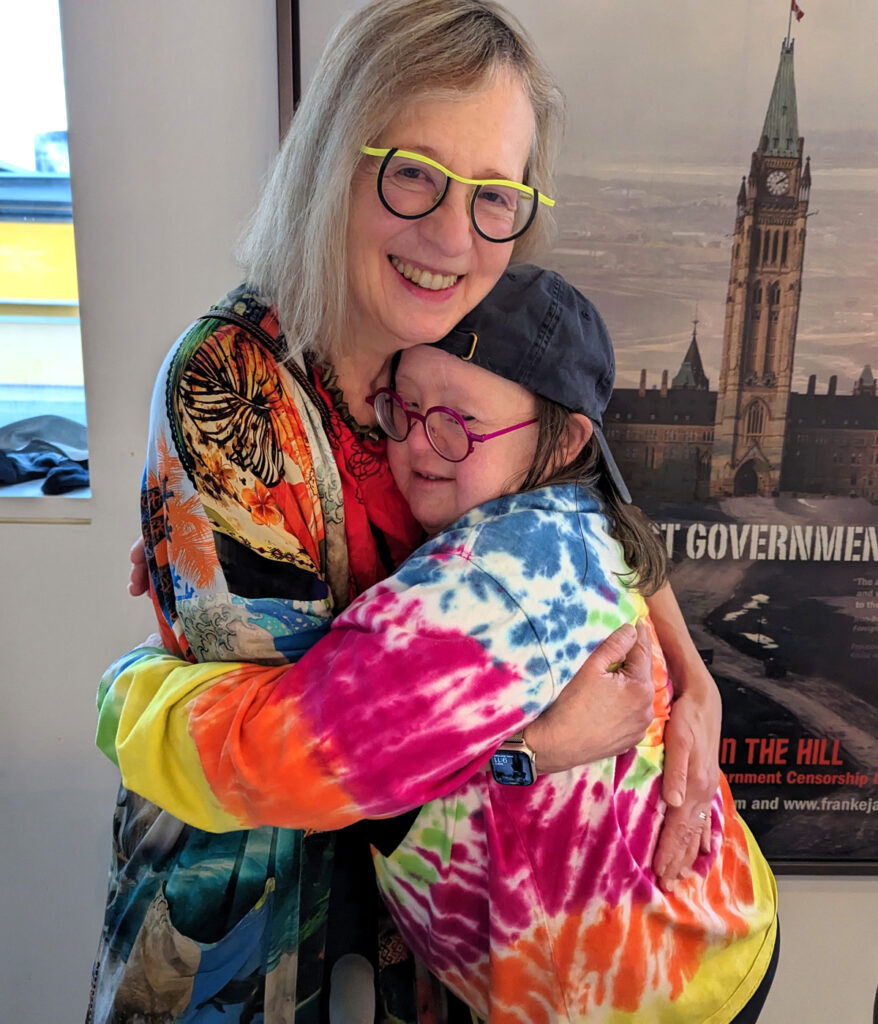
Teresa and Franke have grown closer every day. And now their bond of sisterhood and love is ten years strong.
ONE (1) Champion with an Extra Chromosome
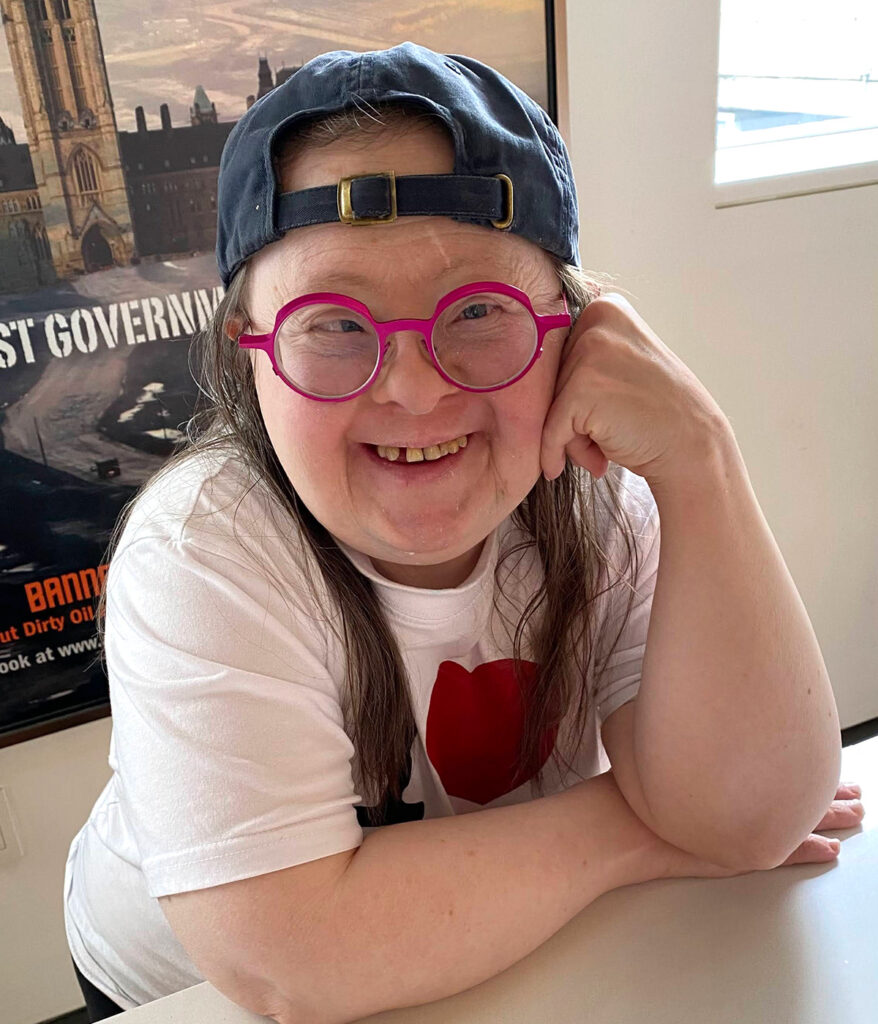
Teresa is very proud of the fact that she has Down syndrome and has become a strong advocate for disability rights. In fact, the Human Rights Commissioner of BC has named Teresa a “Champion for Change” for her advocacy work.
Happy Tenth Anniversary
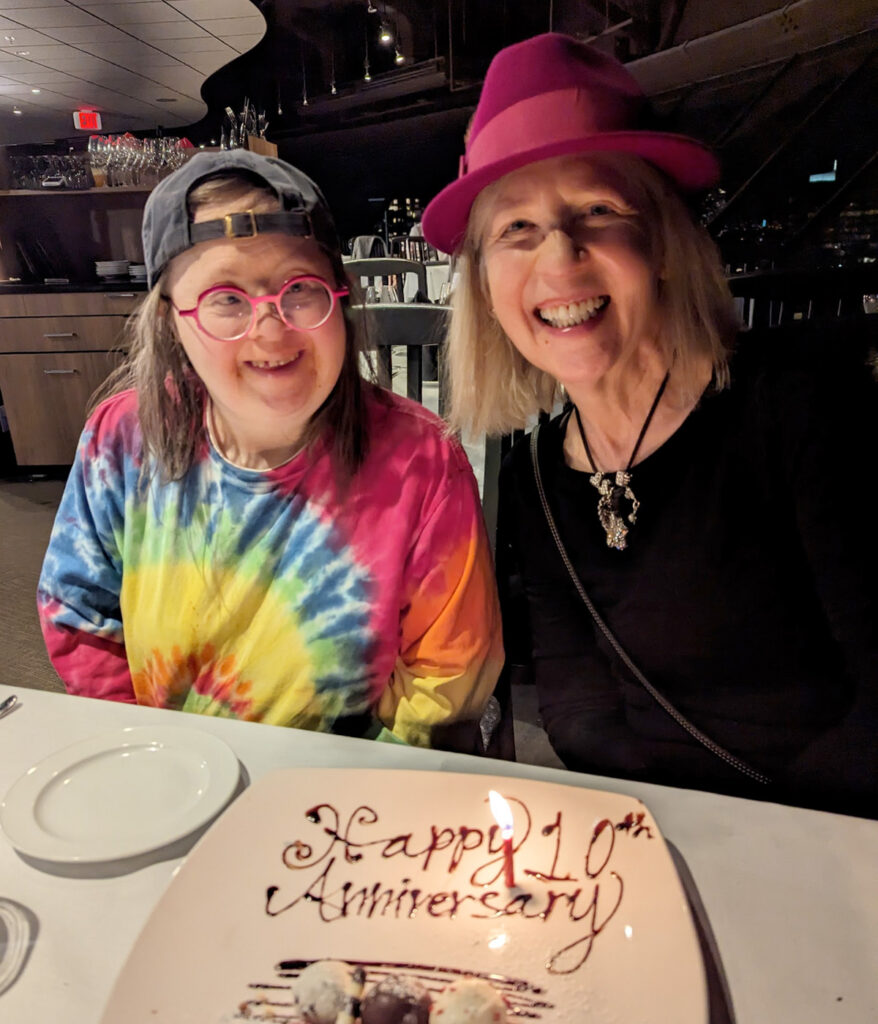
Teresa and Franke celebrate their tenth anniversary together at the Top of Vancouver, the city’s revolving restaurant, in December 2023. Hooray!
What a countdown for a fun decade from 2014 to 2023!

